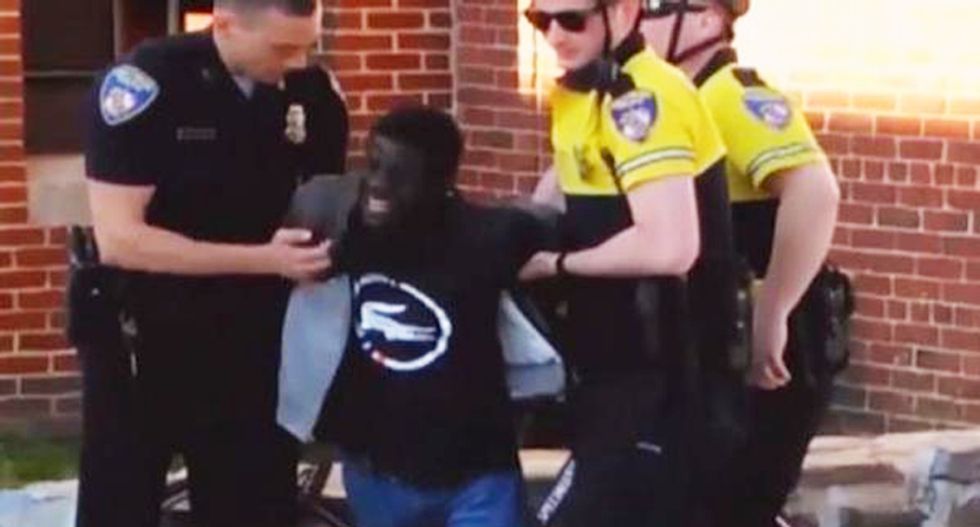
A recent study suggests that larger numbers of white people may have evolved their thinking about deaths of unarmed black men in police custody. In January of this year, in reference to Michael Brown’s death in Ferguson, 56 percent of white people thought the police shooting of the teenager was an “isolated incident,” as opposed to the 31 percent who believed it was “part of a broader problem,” according to a YouGov survey. Contrast this with a poll in taken in the wake of Freddie Gray’s death in Baltimore recently, where just 36 percent clung to the idea that it was an “isolated incident,” while 38 percent saw it as “part of a broader problem.”
Progress? Well, a bit, but there’s still a vast gulf between the races in the perception of policing. And technically, only slightly more, a whole 2 percent of whites see Gray’s death as part of a broader problem than those who see it as an isolated incident, so it’s not time to break out the champagne yet.
The same poll found that, even after Gray’s death, 41 percent of white people believe that police treat black people fairly and just 34 percent disagree. When asked the same question, 76 percent of black people think they are treated unfairly by cops, compared with a paltry 13 percent of blacks who feel they are treated equally by police. YouGov’s findings are similar to a December NBC News/Marist College poll which found that white people are more confident than ever that law enforcement treats black people in their communities equally.
The recent unrest in Baltimore has raised questions about whether the incident has evoked the nation’s conscience over the issue of police abuse and if it can force changes in how bad cops are handled. When asked if the only time the federal government pays attention to black problems is when people resort to violent demonstrations or riots, most Americans (42 percent) agree and 41 percent disagree. But broken down by race, only 37 percent of white people agree that violent demonstrations get more results with 47 percent disagreeing. Sixty-nine percent of black people, on the other hand, feel that violent reactions force the government to pay attention to their issues; 15 percent disagree.
While there are sharp differences in how black and white people feel about race relations and interactions with police, a recent Pew Research poll does reveal that blacks and whites agree on one thing: it was the right decision to charge the six Baltimore police officers in connection with Gray’s death. Seventy-eight percent of black people and 60 percent of white people agree that Marilyn J. Mosby, the Maryland state attorney in charge of prosecuting the case, was right to charge the officers.
There may be disagreements between black and white communities over perceptions of police abuse, but there is no question that black people are disproportionately impacted by police violence. In South Carolina, the state where Walter Scott was shot and killed by N. Charleston police officer Michael Slager, police shot at 209 people over the past five years; 79 people died. Forty-three percent of those who died were black. Only 29 percent of the state’s population are black Americans.
ProPublica’s extensive investigation on available data of police killings reveals that young black males are 21 times more likely to be killed by cops than their white counterparts.
It is impossible to know the exact figures of how many black people are killed by cops each year compared to whites because no such statistics are kept. Perhaps one thing that can be agreed on is that more centralized tracking of police killings, both in general and by race, needs to happen so that Americans have a clear set of data when they are debating the racial disparities in policing all over the country.




